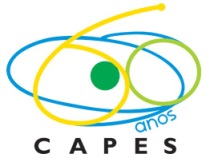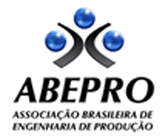 |
![]()
About: All production processes use matter and energy resources and convert them into desired products and co-products as well as sometimes undesired by-products. Products, co-products and by-products are generated by processing raw input materials (minerals, fossil fuels, water, organic matter) in sequential or parallel steps where intermediate products are generated together with solid waste and airborne and waterborne emissions. Some raw materials are not renewable, some of them are also very scarce, other raw resources are slowly renewable and require withdrawal to match replacement time; finally solid waste and emissions generate environmental burden to humans and other species. The sustainability of any process requires that both resource withdrawal from the environment (water from underground reservoirs, wood from forests, minerals from mines, etc) and process waste and emissions are minimized or prevented. LCA, a method to account for the environmental burden generated by a process, looks at the local process (foreground data) as well as to the entire supply chain (background data). In so doing, resource withdrawal and emissions over the entire life of a product, from resource extraction through processing and use up to disposal or recycling, are inventoried and their impacts are accounted for. Some impacts fall within the category of resource depletion, others in the categories of human and ecosystem toxicity.LCA identifies the input and output flows to and from a process, characterizes them with specific impact factors and assigns them to impact categories, to ascertain the extent and the typology of potential or actual environmental burden. Due to the possibility to follow each step of the process, it is also possible to identify the most impacting steps and materials and suggest alternatives. LCA is now a standardized procedure, following well defined rules to ensure comparability and reliability of results (ISO 14040/2006; 14044/2006; ILCD/2010). Performing an LCA is now easier thanks to commercial software available and databases. LCA is recognized worldwide as a reliable method for assessment of many diverse categories of environmental burden with European Union as a pioneer Institution including LCA in most of its research, development and infrastructural projects, and many other countries doing intensive research and testing (USA, China, among others). LCA can also be usefully merged to other environmental accounting methods, among which emergy and exergy, depending on the scale of interest. This seminar will provide the basic concepts of LCA, will show how LCA software can be used to analyse a process and test alternatives, and finally how appropriate resource use and production and consumption policies can be based on LCA and other accounting methods.
Objectives: a) Provide a theoretical outline of the LCA method, its rules, its links to other methods, in particular emergy and exergy; b) Introduce the audience to LCA software and databases; c) Present and discuss several case studies, in order to increase the confidence with the method and the software; d) Deepening the use of software and databases of LCA tool.
Schedule: Module 01 (13/03) 09:00 a.m. - 12:00 a.m. - Theoretical description of LCA method - LCA rules and integration with other methods, particulary emergy and exergy - Presentation of LCA's software and databases 12:00 - 13:00 - Lunch 13:00 - 16:00 - Demostration of LCA's software
Module 02 (14/03) 09:00 - 12:00 / 13:00 - 16:00 - Deepening the use of software and databases of LCA tool |
|---|
|
|||||||||||||||||||||
|---|---|---|---|---|---|---|---|---|---|---|---|---|---|---|---|---|---|---|---|---|---|
 |
|||||||||||||||||||||
|
|||||||||||||||||||||


